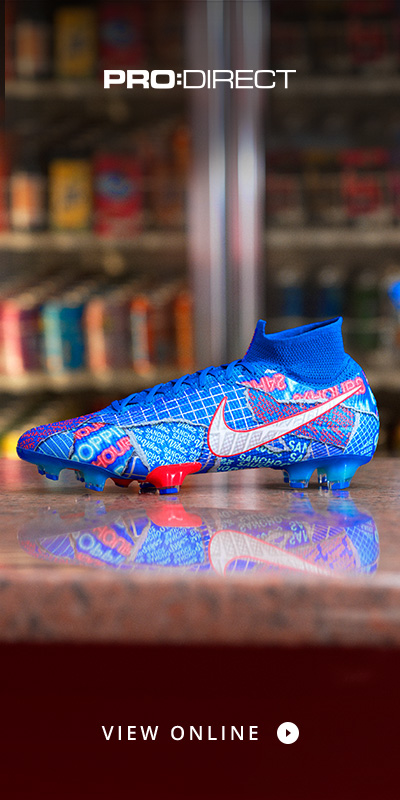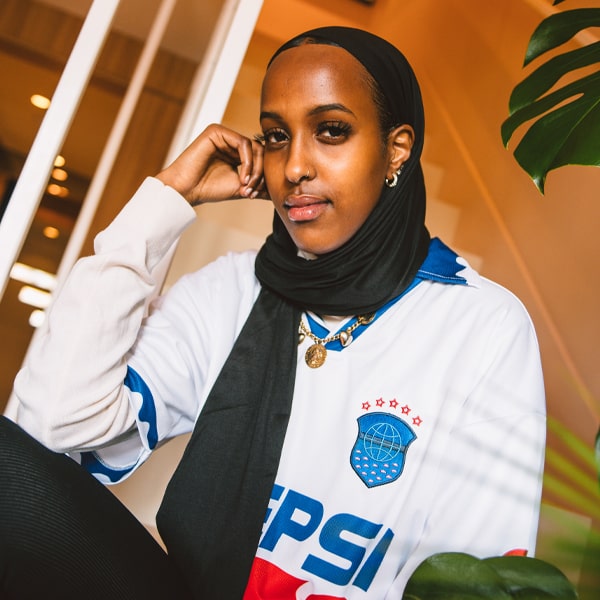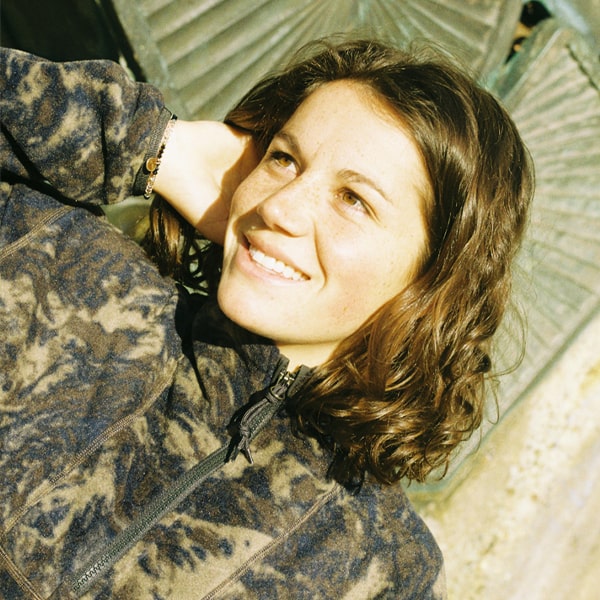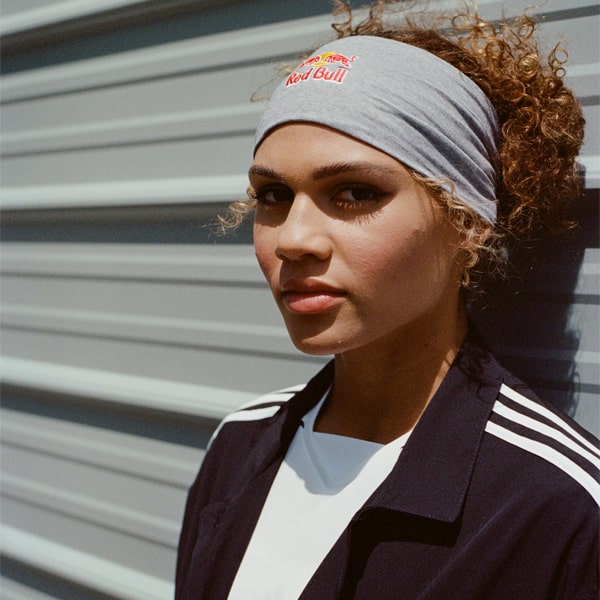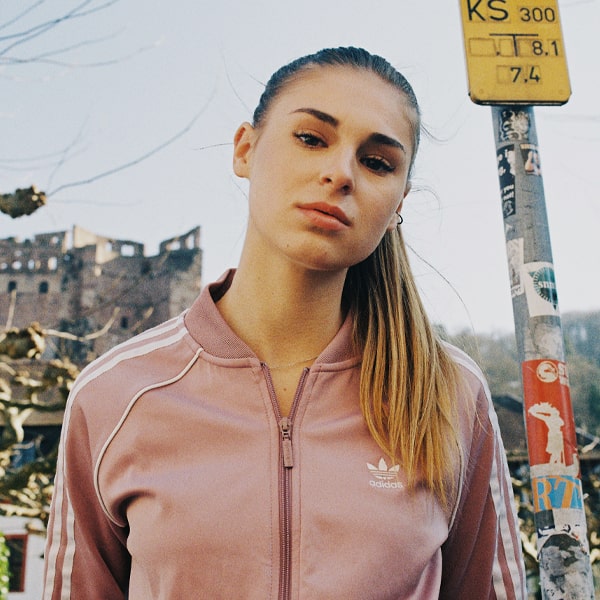In a time where the women’s game strives for the equality that it deserves, Lucy Bronze has carved out a reputation as one of the best players – male or female – of her generation. Coming off the back of her third Champions League success with Lyon, she is now preparing to embark on the next step in her amazing career as she returns to Manchester City determined to find further glory.
Having spoken to Bronze prior to the Champions League final for our ‘Dial Up’ series, in which we discussed, amongst other things, the adversity she has faced throughout her career, particularly through injuries earlier on, we’ve now caught up with her post that game. A game which marked the end of her time with the illustrious French side – and what a way to end.
But now her time with Lyon is over, and as she announces a return to Manchester City, we reflect with her on the influences that have made her the world beater that she is today, as well as how she has single-handedly reinvented her position on the pitch. Never mind Trent Alexander-Arnold – Lucy Bronze is the original new-age marauding right back.
Starting broad but given that your time at Lyon has come to an end and you’re looking at a new chapter with City, where did it all start for you? Where did you fall in love with the game?
My brother is two years older than me. I literally used to just do everything he did and copy him. My mum and dad watch football now because I’m playing but when we were growing up my mum and dad didn’t really have any interest in football until they had to start taking me to training. My brother would put football on the TV and I’d watch it with him. He would always want the new Man Utd shirt or a Brazil shirt and I used to just get whatever he didn’t want. I think it was him that made me fall in love with football really. I just looked up to my brother so much that if he liked something, I wanted to like it too.
As I started playing it, it was then that I really found a different kind of love for it. I was always quite a shy person as a child and having a team sport allowed me to make friends with people and have people around me because of it. All I used to do at break at school was play football because I daren’t speak to people. I wasn’t confident and my social skills meant I stayed in my shell unless I was playing football.
Football is something that forms an amazing community around it, it sounds like you discovered that early on…
Yeah definitely. I think especially as a young girl growing up in the North East of England, there wasn’t much else going on anyway and having something in common with people while discovering a sport I loved, playing football was the best thing for me.
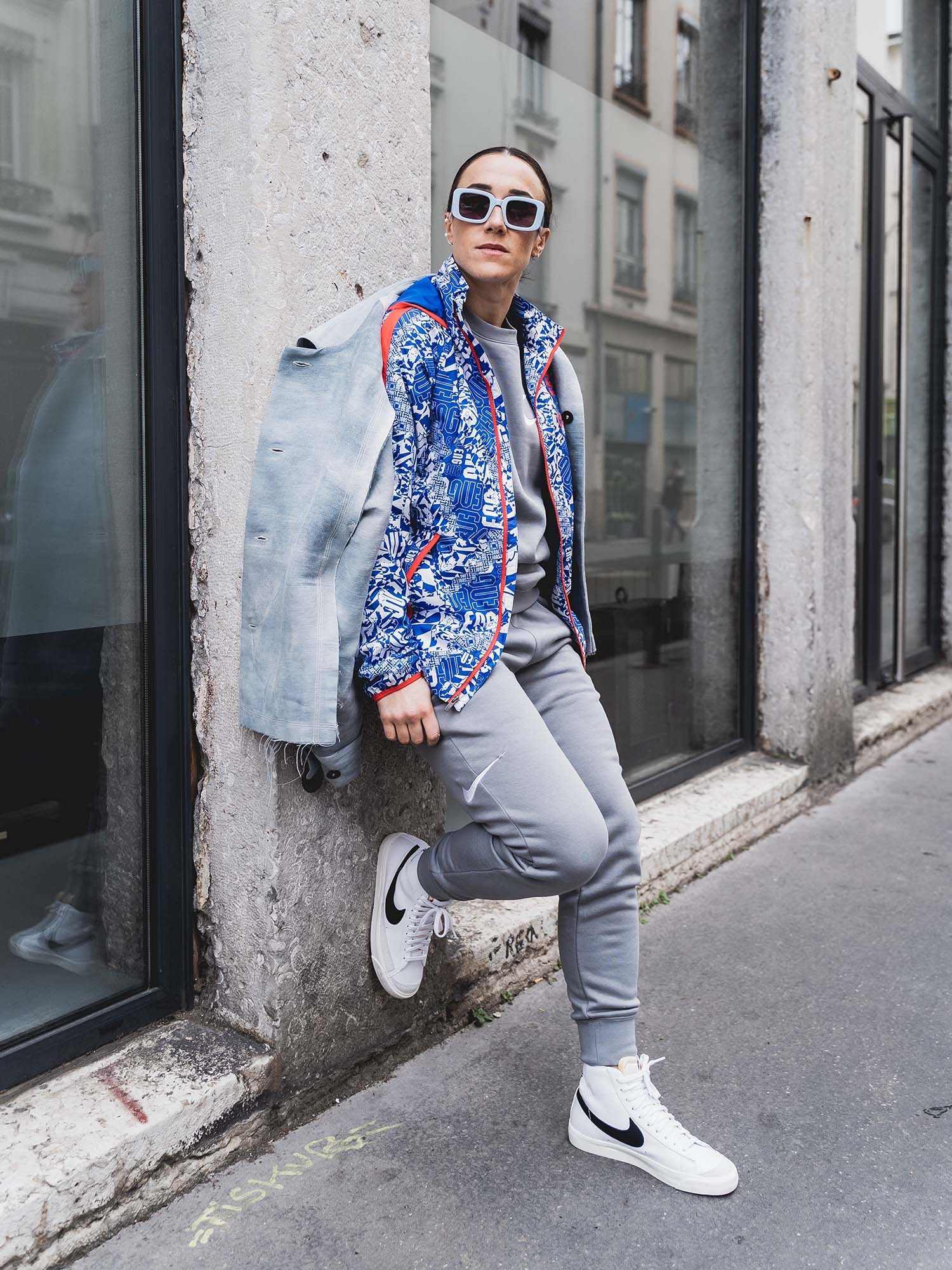
The past eight years of my career have been full of highs and lows and I don’t think I would change any of it because of the life lessons it’s all given me"
That relationship with your brother and the importance of family, have they been a real driving force for you throughout your career?
I’ve always been really close to my family. My parents took me to every single training session from the age of 12 and my brother and sister have supported me constantly. With my brother being two years older, he was always looking out for his little sister. He would say to me “come and play with me and my mates” and would be the captain of the team so he’d always pick me to be on his team. I think that’s rare. There’s not many older brothers that would want their little sister hanging around with them but he was incredible with me. He would be honest and say “she’s good, she’s going to play with us”. My family has made everything accessible for me.
Your brother sounds like he has a progressive head on his shoulders…
Yeah especially back then, for a young boy, 25 years ago but all my family has been like that and nothing but supportive. From my grandma to my aunty to my mum; they’re very head strong women. My dad is Portuguese and has a lot of traditions from Portugal. He cooks a lot – he’ll always cook for me when I’m home. He would do the dishes and all that stuff, I never lived around an overly macho environment so I never had those stereotypes around me. There was no stereotypical roles in my household and I think that allowed both myself and my siblings to be raised in a way like that where there was no judgement. It was just support.
We’re all pushing for equality and more balance across football. Can you feel that happening in football more and more now?
I think it’s being spoken about more and more. I don’t know if it’s actually been addressed fully yet. When I think about the last ten years in my career as a professional football player there’s been a lot of things spoken about a lot more and I think that’s because there are more media outlets for these stories to live on. There’s now a place for women in the game to speak about their journeys and what has happened to them on the way. I think small changes are being addressed but for me I think a lot of what we see is more token gestures. If you want to get rid of any discrimination you have to really go to the heart of it and it can’t be about doing things because they look nice or enhance somebody’s reputation. It has to be heartfelt and there needs to be a desire to actually make a real change to the game behind the scenes.
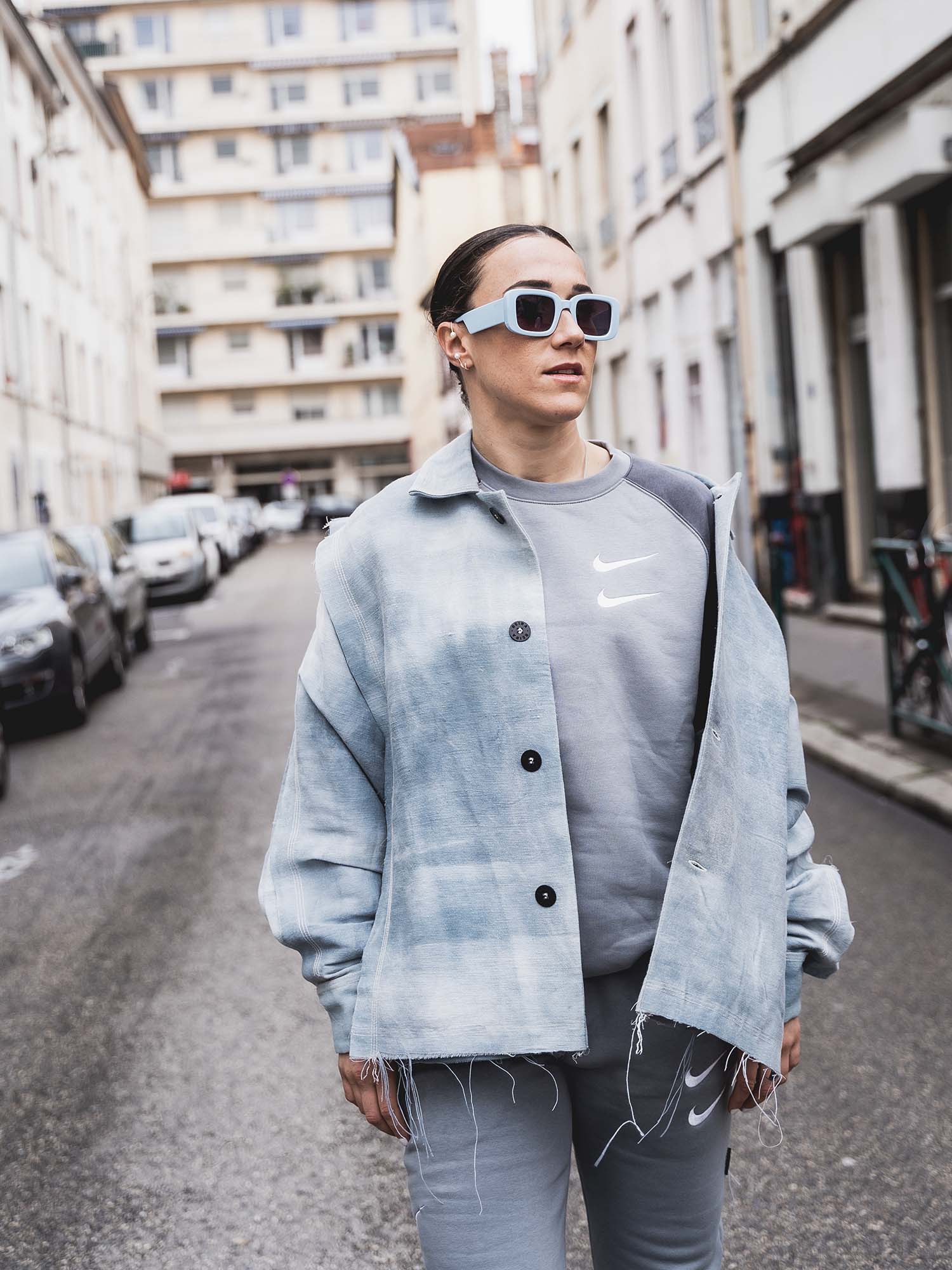
If you want to get rid of any discrimination you have to really go to the heart of it and it can’t be about doing things because they look nice or enhance somebody’s reputation"
You obviously don’t want people to just jump on board the game as hype. How did you feel around the last World Cup when all of a sudden there’s a wealth of interest from places that haven’t shown an interest in the past?
I think there’s always hype around any major tournament whether that’s male or female events and it is the way that we can get more people interested in our sport. You need these headline moments to grab people’s attention. It has to start somewhere and I appreciated that in a big way. It can also be frustrating to think that women’s football has been around for a long time and has been progressing for a long time, it’s not just suddenly coming out of nowhere.
There’s part of you as a female athlete where you have to be grateful for what you get but also pushing to get more. I’m very split on it because on one hand I’m thinking, “about time, everyone should be hyping it anyway”, and on the other I’m like “you know what, we’re still progressing and we do need to be happy that things are moving in the right direction.” Naturally, you’re just always looking for the best in everything you do and football is no different. We want it to be a huge spectacle.
You’ve been through the grit to get where you are. Hopefully the game moves to a place where you’re not simply grateful for being where you are but you’re receiving the elite treatment, elite athletes deserve…
I think my generation, this current England squad, are probably the last age group to have that kind of feeling. We’ve paid money to play for our teams, we’ve gone without training kits and been at the top of the game only doing two training sessions a week – a Tuesday and Thursday night on an astro-turf pitch. I know that the current generation I’m playing with at England, a lot of those players have never had another job or had to work alongside playing at the top level which is huge. Football has been what they’ve been doing their whole life. A lot do it alongside education which some male players do too. I think the generations are changing though where women’s football is moving into the professional level where that is very much the career – no more part-time jobs to support your game.
Do you feel like you’re now in the position where it’s part of your role to educate that next generation as to where you’ve come from?
I think in England we’ve got a bit of a stigma around traditional ways but as long as you’re treating these younger players with respect and they see you treating all those around you in that way too, they’re only going to want to emulate that and copy what you’re doing. It’s important for experienced players to remember that younger players are aspiring to be like you and will copy your actions as well as what you say.
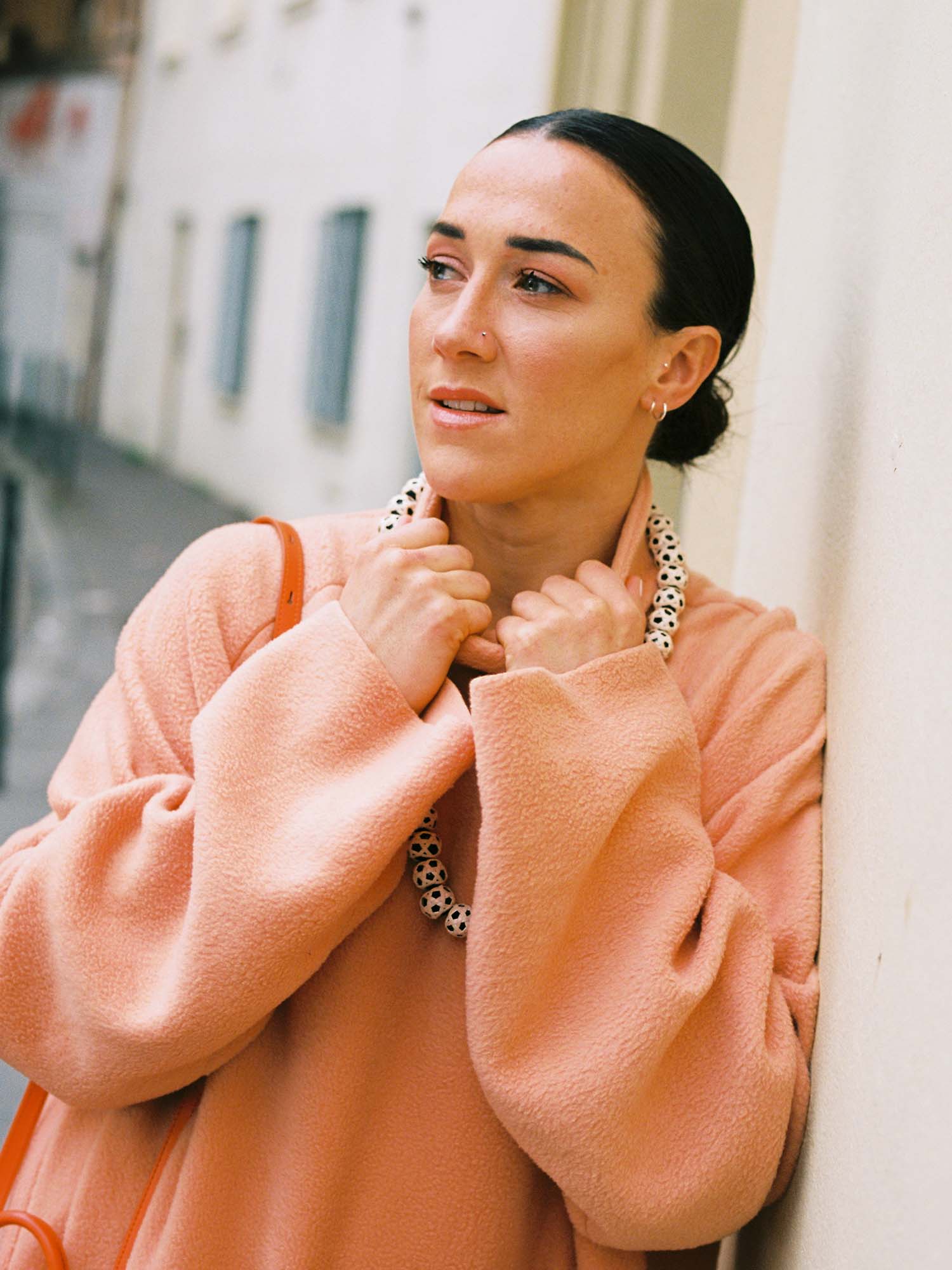
How would you describe that journey that you’ve been on from grass roots to the very top of the game?
I think you probably couldn’t go from more extremes of one side of the spectrum to the other. The past eight years of my career have been full of highs and lows and I don’t think I would change any of it because of the life lessons it’s all given me. Those down moments coupled with the high points make you who you are. We all have different journeys though. Its easy to look at my path and compare that to other players and think my road has been harder but what I’ve been through has now put me in a position where I’ve now won three Champions League finals and I don’t think that has been done by any other female player in England.
So you have to look at the road and realise that the grit you’ve been through, whether it’s injuries, whether it’s a coach not picking you – I think a lot of the very best players have had those kind of setbacks that have pushed you to go further. I wouldn’t say I’ve had setbacks, I don’t like to call them that – I’d say I’ve had my own issues but I’ve used them all as motivation.
Do you feel grateful for having that mindset? When an obstacle has come your way, it’s clearly been about moving forward through that for you…
I think it’s something that has been with me since I was a kid. Thinking back to playing football in the garden with my brother, I would be playing against him as someone bigger, stronger and older and be like, “mum it’s not fair” and I remember realising then that life just isn’t fair, you just have to get on with it, find a way and you’ll get through it. Having that healthy competition at a young age and then all through my life as a player has helped me form that outlook. It doesn’t matter that he (my brother) is a boy and I’m a girl, I’ve just got to fight harder.
Going through the clubs you’ve been at, has moving to each always been about improving yourself?
One hundred percent. Every decision I’ve made with football clubs has always been about the next step in my career, the next step up and bettering myself as a football player. From the outside looking in, you’d just think that’s how careers go; you go from bigger club to bigger club to bigger club each time but I think it’s easier said than done. Moving clubs alone, some people are suited to staying at one club for a while and their development is better that way.
I’m personally better suited to new challenges. I’m always that person who needs a challenge. Whether that’s at the best team in the world or a team that is struggling. I played for Sunderland for a long period of time and I loved that scrappy battle every week just to stay in the league or games against the likes of Arsenal where it was more about making sure they didn’t score a load of goals against you. It was fun and I have that same enjoyment in those scrappy games that I do when playing in these crazy games at Lyon at the very top where we just hammer people.
That’s what I mean though, I’ve experienced both sides of it and I’ve been the best player in a team and also the worst player in a team. I’ve been injured, a regular starter, someone fighting for their spot in the team, getting beat, being the winners, being the favourites and being the absolute underdogs along the way.
It’s been one thing to get the moves you have but to perform at each level is another thing. What do you think you have in you that has meant you’ve excelled with every club you’ve been at?
I think it’s funny because I’m not the type of player that you immediately watch and go “wow her ability is crazy”. Every team that I’ve gone into, the coach has never really expected what I’ve been able to bring. I’ve always had that period at the start of my time with a club where managers put me in the pigeon whole of being a right back. I always set out to prove to people that I’m more than a right back. This position isn’t one where I’m going to be pushed into the corner. A lot of teams have wanted me because they know I’m good but I want to show them that I’m better than that.
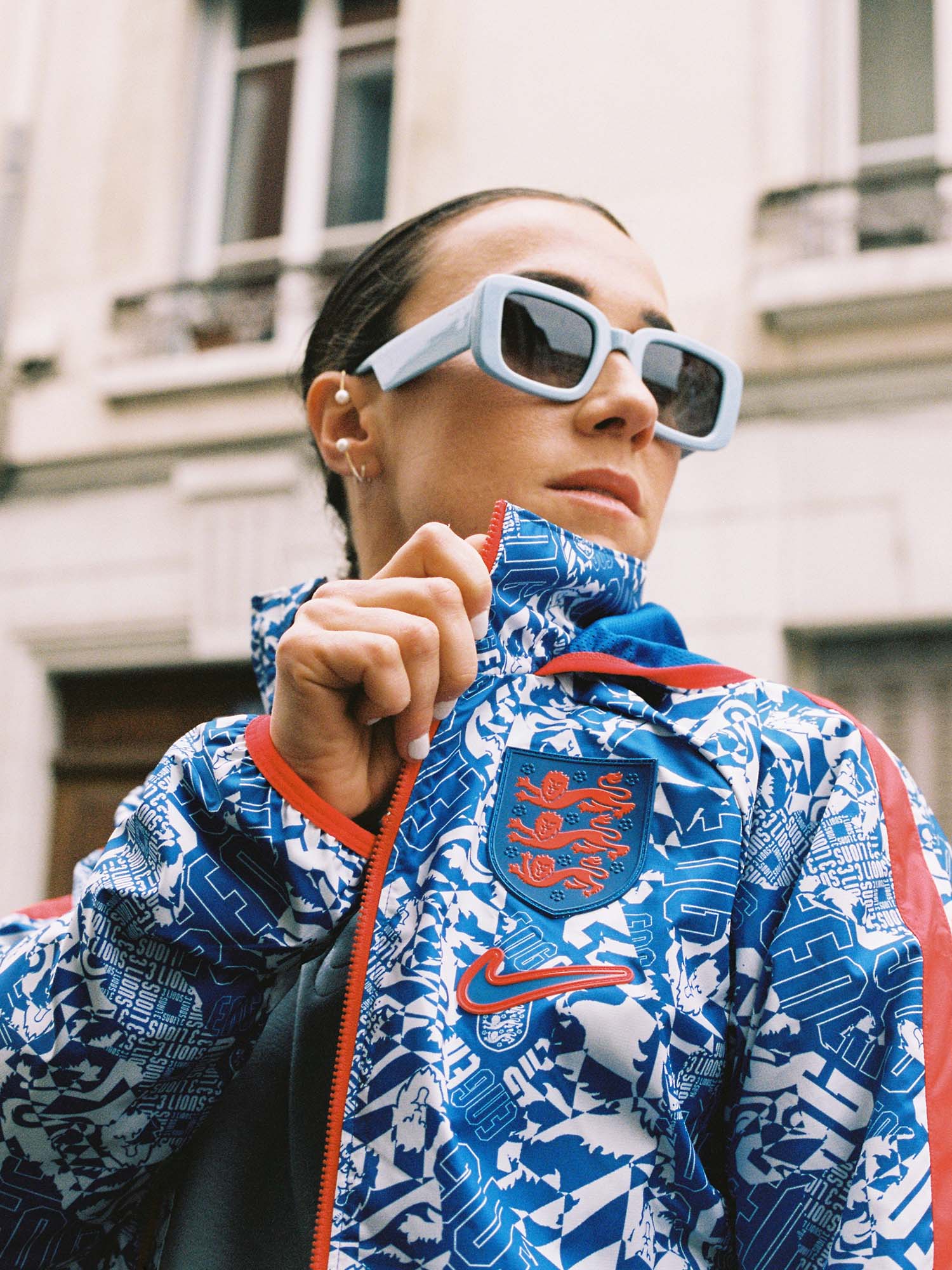
I loved that scrappy battle every week just to stay in the league or games against the likes of Arsenal where it was more about making sure they didn’t score a load of goals against you"
On paper, people wouldn’t say that position is the most glamorous but the way you have risen to the top is remarkable. No other player – male or female – has performed from that position in the way you have and won so many accolades. Do you think you’re making that position a fashionable one now?
Yeah that is something that always used to annoy me. People write you off as a right back. The superstar is the striker or the playmaker. I’ve always looked at that and thought, “that’s great but I can have a massive effect on this game. I’ve had to prove it to my own managers. Even up until Phil Neville took charge with England. With every manager I’ve had to get my point across to show people what I’m about and my versatility. It’s more so for myself rather than the managers. I know how good I am but I don’t know if they’ve experienced everything about my game. It’s so easy for defenders to be just thought of as part of the puzzle rather than instrumental to success.
The word superstar. Do you realise or see yourself as a superstar?
No.
You definitely are for this next generation of England supporters…
I think it’s a weird thing. When I left Man City, I had established myself in the squad and was known a little bit around the world but definitely wasn’t what you’d call a superstar. I think it’s when I’ve been at Lyon, I’ve managed to take my game to another level that I’ve felt things change. The England team has been successful in that time as well. The Lyon team is continuously successful and playing in bigger games.
When in France I would go home, put the tele on and sit on the sofa, watch Netfilx and just relax. I deleted social media a few years back and have slowly brought it back. I didn’t do much on Twitter and I used instagram more because I like seeing what people are wearing. I kind of just became oblivious to what people were saying about me whether it was good or bad. I just kept going on the road ahead. I never let those thoughts of others distract me from the task in hand. Not living in England has also helped not get ahead of myself in that way.
There’s something rock and roll, something Zlatan, something confident about that approach. Just like the idea of being an enigma?
I think it’s easy to take motivation from other people. When people have great things to say about you, who doesn’t like that. Everyone loves the accolades, everyone loves people saying “oh you’re the best player” but what happens when that stops? Where are you going to get your motivation from? You have to have your own motivation to be able to keep you at the top. People aren’t going to like you 24/7, people don’t like me 24/7.
How do you handle that then, going from the highs to the lows? Playing in front of so many people, on huge stages to then getting in the car, being on the sofa etc…
I think my biggest problem, which is good and bad, is that I don’t really ever take into consideration how big a situation is. People say at the end of your career you can start to look back and stuff and I think that is going to be me. I’m going to get to the end, look back and go “woah!”. Right now I never think like that. I just go to every game excited, whether it’s the Champions League Final, the World Cup or a kick about on an astro-turf pitch. I’m just excited to play football. It will be at the end of my career when I go through a photo album or take my trophies out of the cupboard. They’re all packed away for now. I think it’ll be then when it just sinks in.
I think if you stop and look too much at those accolades, you might forget that there’s always more you can do. Even the likes of Messi and Ronaldo with 5 or 6 Ballon d’Or’s, there’s always a 6th or 7th out there. There are always records to break. They are proof of that. Two players at the top of the game, towards the end of their careers, still breaking records, still doing so much more than anyone else. There’s always another trophy to win.
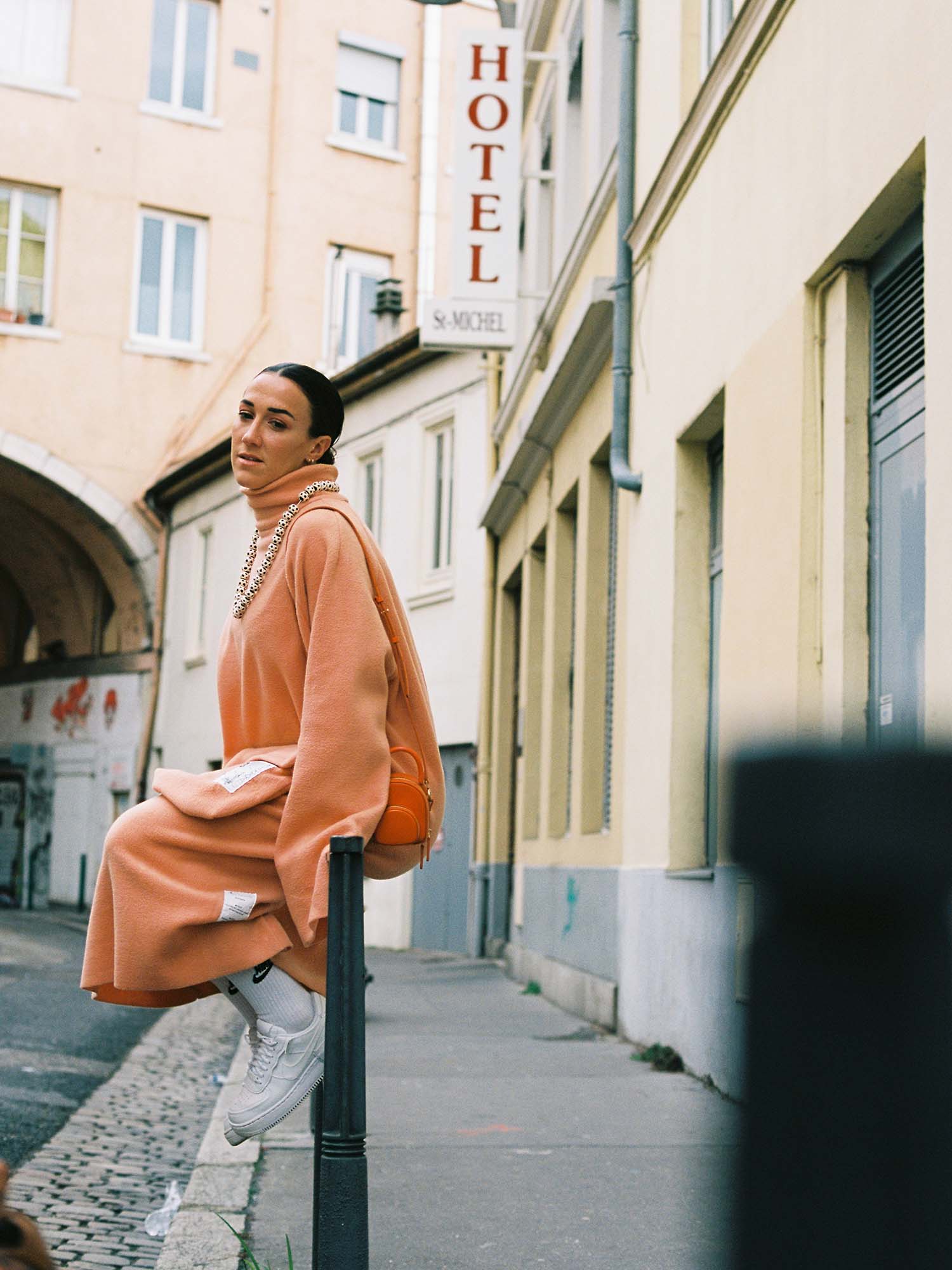
With that winning mindset, what are you like to be around? In the nicest possible way, are you difficult to be around because your standards are so high?
As I’ve got older, the way it’s been perceived it’s probably mellowed out. In my mid-twenties, I was… people just knew I had to win. In the gym with the England girls, a few years back, people wouldn’t want to do little games because they knew I would just want to win. They were joking but I deep down I was saying to myself, I bet they hate me [laughs]. I’m just one of those people who is so competitive but I also have the ability to back it up.
As I’ve got older I’ve realised that I don’t need to prove myself every single minute and wind people up by doing it. When I was younger, I didn’t have coaches giving me that praise and I always felt like I needed to kind of show myself and say “I’m here you know?”. It kind of took winning at everything else to show I was there on the same level as everyone else.
Your mindset now, you’re someone who is switched on and engaged. Would you say you’ve broadened your horizons and become more interested in fashion and things like that as you’ve grown?
I think I’ve always loved dressing well. My mum used to hate taking me to get new trainers. I’m obsessed with them. We didn’t have much money so when I got a pair I would make sure they’re exactly the right ones. My mum would take me to a shop and just say “get those ones”, which would be any pair but I was always like, “no, I know exactly what I want”. I would take ages over making that decision. It was all in the detail as well, things like if I saw a pair with a blue swoosh, I was like “no, I want a green one”, I was always so specific about what I wanted. I just needed the exact thing that I had seen, I couldn’t alter from that.
As I’ve got older, I think I’ve been able to express myself better. I don’t see myself as this person who is going to set fashion trends and things like that, I’ve never been that confident about the way I look or the way I dress to be like “look at me”. Now I’ve seen it as another way I can express myself. I think it’s important to feel confident in what you’re wearing, so now I take the approach that I’m going to wear something because I think it looks cool. I don’t care what anybody else thinks. When I was younger, I was way more self-conscious.
Would you like to be the face of more campaigns and things like that?
I just want to be myself more importantly. If that stuff comes along with it, then that’s cool. If it resonates or people can associate themselves with you, it’s cool. If they don’t then that’s fine too. I just want to be more confident in the way I’m perceived.
Lyon has been full of superstars, of players who dress well, big characters – what has that been like?
It’s been cool. The environment is so cool. So many different cultures and so many different views on life in general. It’s been really cool. I think that’s why I feel like my horizons have been broadened, because I have these people like Kadeisha Buchanan, Shanice Van De Sanden and Ada Hegerberg – they are just such confident people. So many more in the team as well. No one makes fun of each other, it’s more about appreciating how completely different everyone is and accepting everyone for who they are.
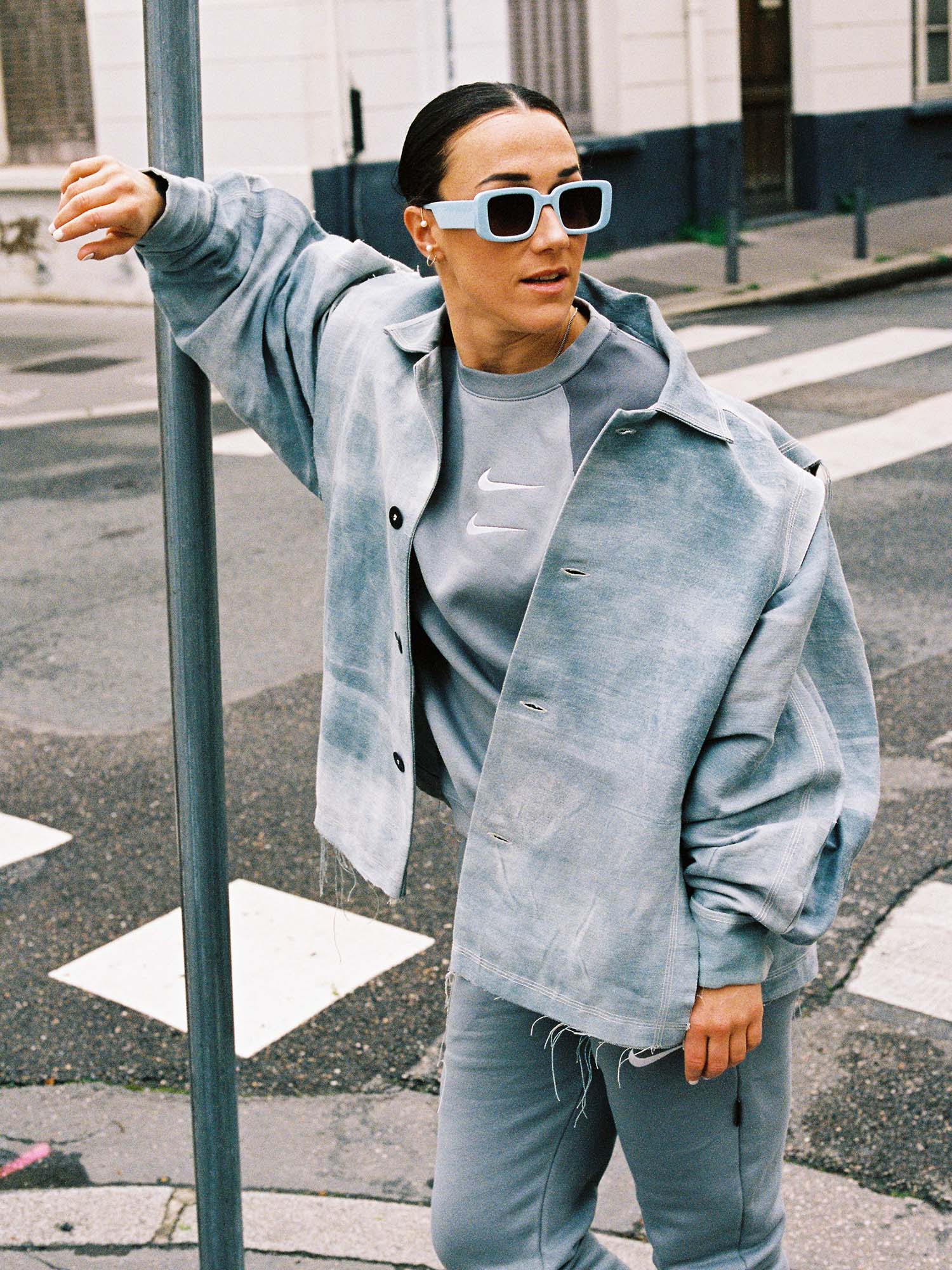
I’ve been the best player in a team and also the worst player in a team. I’ve been injured, a regular starter, someone fighting for their spot in the team, getting beat, being the winners, being the favourites and being the absolute underdogs along the way"
Talking about broadening horizons, new experiences, all you’ve achieved… with England you get to see a lot of the world. How big is travel for you?
I kind of see it as two different headspaces. When I’m playing football, that’s my focus. When people say football is great because you get to travel, they’re not wrong. It is great for that reason but at the same time, my focus is on winning and being the best player I can. Yeah you get to experience great things but if it’s at the expense of my game, then I wouldn’t even consider it.
When it comes to my free time, I want to explore the world times over. I love finding and seeing new places, trying different foods – I eat everything. I love the sunshine, the snow, I love it all and I have since I was younger. Being brought up in a multilingual family with my mum and dad being from such different cultures, they’ve always encouraged us to try new things and I’ve always enjoyed that process.
Where’s the one place you’d go back to in a heartbeat?
I have this thing where I hate going back to the same place twice. If I’ve been to somewhere, you have to twist my arm for me to go there again. If my friends are like, “do you want to go to Portugal?” my initial response is just “no, I’ve been there, I want to go somewhere else and experience something new”. I’ve been to most places in Europe now and been to many places in America. I love South America. I want to go to Brazil. Bali looks amazing too.
Obviously things this summer were put on hold but the thought of an Olympics must still be on your mind…
For football in Great Britain, you never really think of the Olympics. We were part of it once, in 2012 but it’s not really part of our history. For Athletics, it’s the one event my parents loved. Watching the Olympics on TV. People like Kelly Holmes, Paula Radcliffe, so inspiring. When I think of the Olympics and think about the prospect of being an Olympian, it’s something I want to achieve so much. I hope it can happen, I hope it can happen in Japan too and I hope I get that opportunity. It would be another crazy experience. To be in Japan around football would just show another dimension as to what the sport can offer. Everyone is excited about it, everyone wants to be involved and I think it stands out as a once in a lifetime opportunity.
How would you summarise your time in Lyon?
I’ve found a very comfortable place to be. I can speak the language a lot better now. I realise that shops don’t open on Sundays now [laughs]. It’s the little things that are so culturally different that I have adapted to. I’m proud of myself for the steps I’ve taken. It’s helped that there’s so many different nationalities on the team. We’ve all shared this experience of a new place in our own way. Lyon is a really cool place. My parents have loved coming to visit and we’ve had some special times – there’s always been so many things to do, see and visit… and eat.
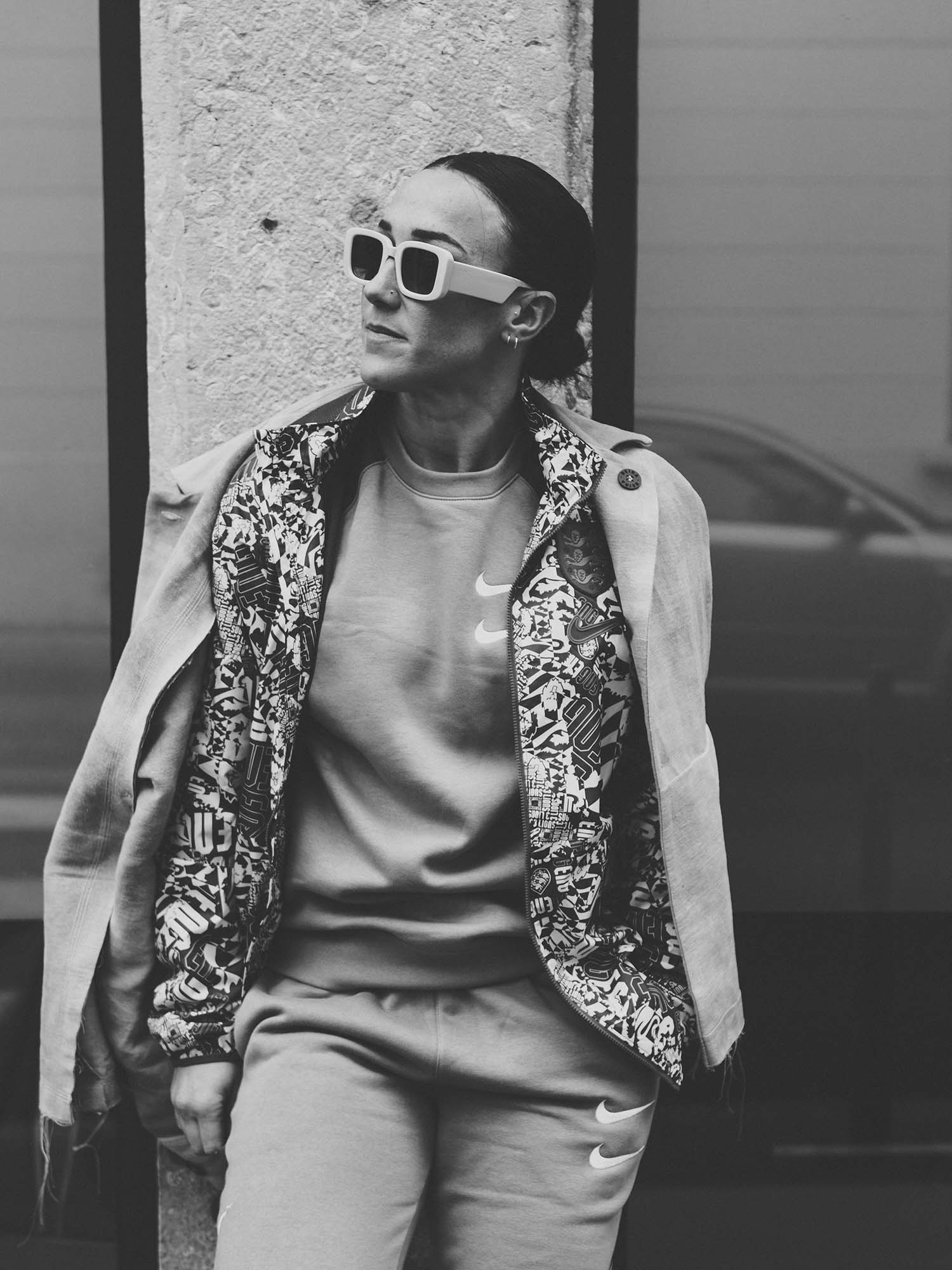
Ten years looking back – the injuries you’ve overcome, the rise to the top – effectively doing the unthinkable. What advice would you now, give to 18 year old you?
I was struggling then. I would just say, everything is going to be OK. Just keep working. I always had that feeling I carried around with me when I was younger and going through injury of why me?, why am I not getting the break, why am I injured. It’s all turned out well and I think going through those things has made me better now.
Wishing Lucy the best of luck in her next chapter back at Manchester City. Not that she needs it, she'll smash it no matter what...

